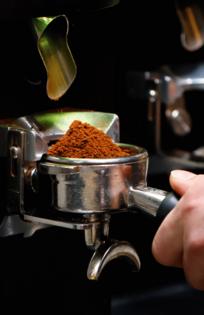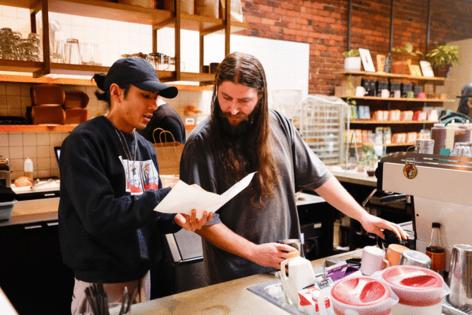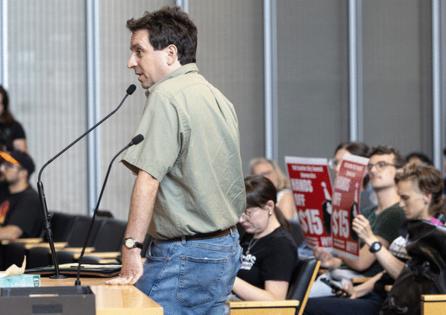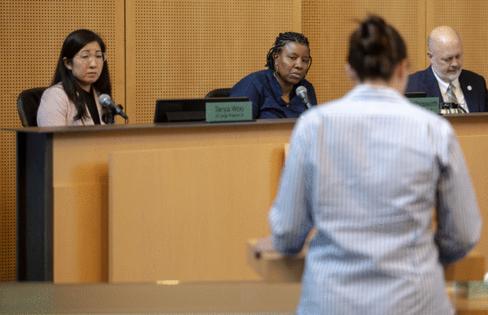Seattle minimum wage debate has restaurant workers feeling conflicted
Published in Business News
Until the calendar turns to Jan. 1, 2025, Seattle's hourly minimum wage has fine print.
For now, Seattle's minimum wage varies based on business size, tips and benefits. In 2025, that all goes away. On Jan. 1, Seattle's minimum wage will become a flat $20.76, among the highest in the U.S., representing a pay jump of $3.51 for some.
On paper, it's a big win for hospitality industry workers. In practice, it's not that simple.
In Seattle City Council meetings this year, the wage hike has become a political lightning rod, with familiar battle lines drawn between restaurant owners and labor advocates.
Seattle restaurants have panicked about the issue all year long, saying many won't stay afloat as wages rise in an industry that has never fully recovered from the pandemic. They caught flak last summer for lobbying the council to extend the city's expiring tip credit, which lets smaller businesses count tips and benefits toward the minimum wage until Jan. 1. That short-lived effort died in August.
Meanwhile, labor organizations have protested the tip credit extension, saying on thatsadealbreaker.com that "restaurant industry lobbyists always make the same old tired argument: the industry simply cannot swallow a wage increase without destroying businesses." Katie Garrow, of MLK Labor, put it bluntly in July, saying "It is unacceptable to require or rely on a business model that exploits poor people."
Restaurant owners dispute that characterization, pointing to the industry's thin margins and the fact that many restaurant workers make far beyond the minimum wage in tips.
So how do workers feel about the minimum wage? Nervous, anxious, resigned.
Six Seattle-area restaurant workers and one barista-turned-owner expressed uncertainty about the wage hike, especially potential lost wages and tips when local businesses raise prices or cut shifts to compensate for increased labor costs.
The raise is nice, but some workers fear the higher minimum wage will achieve the opposite of what it aims to do, ultimately leading to less take-home pay.
In the background is an industry truth: The food business isn't a monolith, meaning solutions for a counter-service restaurant might not work for a fine-dining establishment and vice versa. It makes "one size fits all" rules impossible in this industry.
There are no easy fixes, and as restaurant owners shuffle through potential ways to stay solvent — raising prices, cutting hours, implementing service charges — restaurant workers are concerned about a domino effect from the rising minimum wage.
One size doesn't fit all
Jeanie Chunn, co-founder and director of engagement for Seattle Restaurants United — a coalition of restaurant owners and operators founded in 2020 — sees both sides of the minimum wage debate.
Before launching SRU in 2020, Chunn worked in the industry in various roles: as a server, a dining room manager and director of operations between Campagne, Canlis, the Corson Building and for Renee Erickson's Sea Creatures restaurant group. She was on the committee that wrote the $28.1 billion Restaurant Revitalization Fund in support of business owners and has also worked with One Fair Wage and Jumpstart Seattle — groups that have lobbied to end the tip credit.
Chunn has worked with owners and workers alike and says that focusing on them separately instead of emphasizing their symbiotic relationship is where the discussion is veering off-course.
"I'm tired of labor pitting (owners) against workers," Chunn said. "Our business owners look more like their workers than large corporations ... the problem with restaurants is we're a labor-intensive industry. It's why we're the largest private sector in the country but it's diverse in how we show up."
Bartender Stef Rider said responses to the rising minimum wage will differ even at the two Seattle bars where she works: Liberty Bar on Capitol Hill and Georgetown's 9lb Hammer.
Liberty is an upscale cocktail bar that serves sushi. Benefits include paid time off and full, employer-paid health care, vision and dental. Rider makes $19.25 an hour — but averages $50 hourly with tips.
Meanwhile, 9lb Hammer is "a neighborhood dive bar." Over the past few years, she's watched drink prices slowly climb, with formerly $5 pints now going for $8. She makes the expiring adjusted minimum wage of $17.25 an hour and has no benefits, but "I make way more in tips," Rider said.
"I make Saturday money there on a Wednesday. It's not a terrible trade-off."
Liberty is getting creative to offset wage increases, looking to generate new revenue by hosting private parties. As for 9lb Hammer, Rider said, "I think they're going to weather the storm and increase prices quietly."
Neither bar is planning to implement a service charge to offset labor costs yet, Rider said. She doesn't think it would fit at either workplace.
"It's one solution that I can see is very appealing if you're running a certain kind of program," Rider said. "I also think it's something that only higher-end businesses can do. So where does that leave the rest of us?"
The one common thread? The majority of Rider's paycheck comes from tips at both bars. With businesses bound to react to the new minimum wage by inflating menu prices or other means, and workers making most of their money from tips anyway, it can feel like the conversation is missing the point.
Higher prices, lost tips
At a Seattle Times panel in September, restaurateur Ethan Stowell said he supports the rising minimum wage. He also added some context.
"We as a community have decided that we feel like there's an ethical responsibility to raise our minimum wage to the highest in the nation," he said. "If we are going to have that mission — which I'm for — we're going to have, simply put, the most expensive restaurants in the country."
But not every restaurant can raise prices and expect customers to stomach the difference. Seattle is a city where you can find a $54 Manhattan or spend hundreds on a "splurge" meal, but there's a ceiling. Not every coffeehouse, cocktail bar, pizza shop or burger place can make their money back by lifting prices.
Price increases come with repercussions — negative reaction to higher prices can lead to less business and lower sales, which lead to fewer shifts being available or layoffs.
Jessie Larson works four days a week as a bartender at Foreign National, a Capitol Hill cocktail bar. She currently earns the adjusted minimum wage of $17.25 per hour. With tips added in, she makes between $30 and $40 an hour.
She worries that when the minimum wage goes up, her tips will take a hit.
"The only reason I can afford to live in the city limits is because I'm getting tipped on top of my hourly. I can't afford to live here on $20 an hour," Larson said. "I would have to make some serious life changes if the tips were to decrease, which is a strong possibility."
She worries about backlash from customers in response to the wage hike.
"How is guest perspective going to change when they know I just earned a $3 raise an hour? Are they going to tip the same?" said the craft bartender. "Will they go out less frequently or be a little bit more conservative when they are going out?"
Larson wonders why minimum wage is the main focus when it comes to raising the quality of life in Seattle.
"There are other things to consider," Larson said. "Liquor tax, sugar tax in Seattle, commercial rent, rent in general — I think there's a lot of other things to consider that could increase pay and quality of life for working-class people, other than just $3 more an hour on their paycheck."
Brendan Newcomb, a manager at The Garrison in Ballard, wonders what more the city could do to support the industry.
"The city bends over backwards for companies like Amazon to be here, to stay here," he said. "If there are tax subsidies for Amazon to stay downtown, why aren't there some for restaurants to stay where they are?"
In the meantime, Newcomb is trying different solutions to make ends meet at The Garrison as wages are set to bump.
Bartenders seat people most days of the week instead of staffing a host. There's still a happy hour with $2 oysters and $3 Hamm's tall boys, but there's also a $24 wagyu patty melt, meeting customers at different price points.
"It's like any other model — something happens and the ones who adapt survive," Newcomb said, "and the ones who don't get a memorial story in the paper."
Benjamin Wright, vice president for the Washington chapter of the United States Bartenders' Guild and bar manager at Capitol Hill's Herb & Bitter, said "we're raising prices" to prepare for the impending wage jump.
Beyond that, though, Wright sees other bumps in the road. For instance, when new wage rules go into effect, the staff at Herb & Bitter will make the same hourly rate as him.
"I'm getting no raise," Wright said. "What will be taken away is my financial incentive to manage."
"Only so many levers to pull"
At coffee shops, there isn't much wiggle room to cut shifts or raise prices. People like Alex Sciarrotta "feel complicated."
The longtime-barista-turned-owner of Narrative Coffee in Everett wants to do right by his workers. He's reluctant to raise prices and unwilling to skimp on quality. He supports pro-worker legislation, but he's wary of the butterfly effect of the minimum wage bump.
Currently, the Everett minimum wage is $16.28 an hour, but in January, it will follow Seattle's, rising to $20.24.
Sciarrotta still thinks of himself as a worker, not an owner. He remembers the last time the coffee shop raised prices, nearly three years ago, upping the cost of a drip coffee from $3.75 to $4.50. As the manager at the time, he implemented the change.
Since that time, wages have already gone up $2 an hour, and all of Sciarrotta's operating costs have increased, he said. He's reluctant to bump prices again but he's running out of options.
"We've been just holding off because I've been trying to tread water and not charge people more, because I don't like that," Sciarrotta said. "One of the primary guiding principles for me in business is trying to think, 'How do I build better lives for everyone internally regardless of where they're at?'
"There's only so many levers to pull as a business owner."
When the city of Bellingham, where Narrative has a branch, raised the minimum wage by a dollar this year, Sciarrotta saw "a lot of people get laid off up north," which doesn't sit well with him, either.
"You can cut labor, but not only does that have the opposite effect of what people were trying to do with raising the minimum, because people are out of jobs, you're also kind of asking your staff to have worse working conditions, which is something I'm not OK with," he said.
Right now, everyone on staff at Narrative makes above minimum wage, plus tips. There are scheduled yearly raises of $2.50 an hour over three years and a cost-of-living increase that mimics the minimum wage increase each year. They also offer PTO and sick time plus a matching IRA program.
Sciarrotta was trying to offer health care to employees, but this wage increase pencils out to an additional $150,000 in labor costs between the two cafes, so he's going back to the drawing board.
"I'm tentatively nervous. I'm not nervous because I don't want to do this, but because I'm worried that the consumer base is not going to be OK with price increases, which is really our only option if we're not trying to negatively impact our staff," Sciarrotta said.
"I'm for pro-worker legislation," he continued. "But I think treating it as a monolith isn't really solving the core of the issue. And pretending it's easy and pretending most of these smaller places just have wads of cash lying around is just not true."
©2024 The Seattle Times. Visit seattletimes.com. Distributed by Tribune Content Agency, LLC.





















Comments